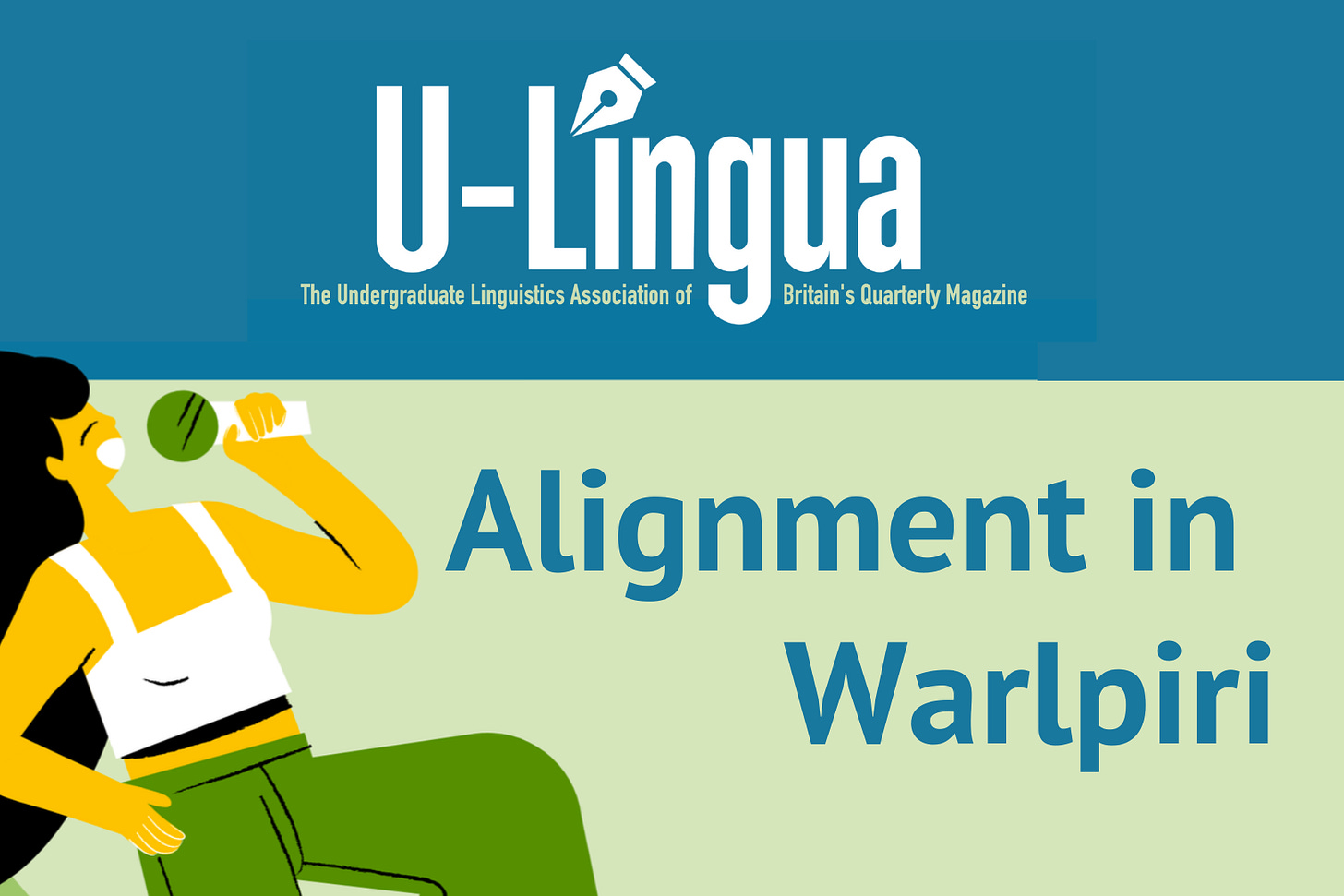Warlpiri Puzzle: Solutions
Solutions and commentary to the Warlpiri puzzle in Issue 9.
Solutions to the Warlpiri puzzle in Issue 9. Both puzzle and solutions are by Kazune Sato, MPhil student in Linguistics at Cambridge.
Q.1.
(question // solution)
Jiji ka warrkarnu. // The horse climbed.
Malikirli kulaka warna larrjirni. // The dog does not scratch the snake.
Kirdajarra ka wangkaja. // The two fathers spoke.
Wati ka parnkami. // The man runs.
Kurdujarrarlu ka jijijarra jarntirni. // The two children trim the two horses.
Q.2.
(solutions // question)
Kuwana ka parnkaja. // The lizard ran.
Jijingki kulaka maliki marnpirni. // The horse does not touch the dog.
Jakamarrarlu ka wati yampimi. // Jakamarra rejects the man.
Kurdujarrarlu kulaka jiji jarntirni. // The two fathers do not trim the horse.
Malikijarrarlu ka kuwanajarra yarlkurnu. // The two dogs bit the two lizards.
Deducing the following facts about Warlpiri would have helped you solve the puzzle:
Warlpiri has the word order Subject/Agent - Polarity - (Object) - Verb.
Warlpiri follows ergative/absolutive alignment, where the subject of a transitive sentence is marked with ergative case, whilst the subject of an intransitive sentence and the object of a transitive sentence both receive absolutive case.
Nominal morphology is as follows: root(-jarra, dual)(-ngkV/-rlV, ergative)
V = i (if stem ends with /i/), u (otherwise)
-ngkV for bisyllabic stems, -rlV for stems with 3+ syllablesPolarity: ka (positive), kulaka (negative)Verbal morphology: root-tense
Present: -mi, -rni
Past: -ja, -rnu
V before -rni/rnu follows vowel harmony (irni ~ urnu).

